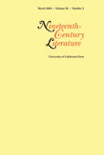
NINETEENTH-CENTURY LITERATURE
Scope & Guideline
Unearthing the Rich Tapestry of 19th-Century Literature
Introduction
Aims and Scopes
- Interdisciplinary Literary Analysis:
The journal encompasses a wide range of interdisciplinary approaches, integrating literary studies with history, cultural studies, gender studies, and ecological criticism to provide a holistic understanding of nineteenth-century literature. - Focus on Victorian Literature:
A significant emphasis is placed on Victorian literature, examining its themes, forms, and societal impacts, particularly through the lens of realism, metafiction, and the evolution of narrative styles. - Exploration of Marginalized Voices:
The journal highlights works from marginalized authors and perspectives, including queer, feminist, and postcolonial readings, thus broadening the scope of traditional literary criticism. - Engagement with Theoretical Frameworks:
The journal encourages the application of contemporary literary theories, such as ecocriticism, psychoanalysis, and cultural materialism, to re-evaluate and reinterpret nineteenth-century texts. - Historical Contextualization:
Articles often situate literary works within their historical contexts, analyzing how social, political, and economic factors influenced literary production and reception during the nineteenth century.
Trending and Emerging
- Ecocriticism and Environmental Studies:
A growing interest in ecocriticism is evident, with articles exploring the relationship between literature and environmental issues, reflecting contemporary concerns about climate change and ecological degradation. - Queer Theory and LGBTQ+ Perspectives:
There has been a marked increase in the exploration of queer theory and LGBTQ+ perspectives within nineteenth-century literature, indicating a broader acceptance and importance of these themes in literary discourse. - Narrative Theory and Metafiction:
The journal is witnessing a surge in interest in narrative theory and metafiction, particularly focusing on how these elements function within Victorian literature, suggesting a deeper exploration of narrative structure and its implications. - Cultural Memory and Trauma Studies:
Emerging themes related to cultural memory and trauma, particularly in the context of Victorian novels, reflect a renewed focus on how literature articulates collective experiences of trauma and historical memory. - Transnational Literary Studies:
There is an increasing trend towards transnational literary studies, which examine the interconnectedness of literary traditions across borders, emphasizing the global dimensions of nineteenth-century literature.
Declining or Waning
- Traditional Romanticism:
Discussions centered solely on traditional Romanticism appear to be waning, as the journal has shifted towards more complex intersections of literary movements, such as the blending of Romanticism with realism or modernism. - Classical Literary Canon:
There is a noticeable decline in the focus on the classical literary canon, with fewer articles dedicated to well-established authors like Wordsworth and Coleridge, as the journal increasingly prioritizes lesser-known or marginalized voices. - Conventional Gender Roles:
Themes exploring conventional gender roles in literature are being replaced by more nuanced examinations of gender fluidity and identity, indicating a shift away from binary perspectives. - Static Historical Narratives:
The journal has moved away from static historical narratives that do not engage with contemporary issues, favoring instead dynamic analyses that connect nineteenth-century literature with ongoing societal debates. - Regional Literature Studies:
There is a decline in the emphasis on regional literature studies, as the journal increasingly embraces transnational perspectives that transcend geographical boundaries.
Similar Journals
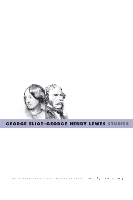
George Eliot-George Henry Lewes Studies
Celebrating the Voices of Literary PioneersGeorge Eliot-George Henry Lewes Studies is a reputable academic journal published by Penn State University Press, focusing on the rich literary contributions of George Eliot and George Henry Lewes. Established in 2017, this journal has quickly carved out a niche in the field of Literature and Literary Theory, achieving a commendable Q2 quartile ranking in the 2023 category. While its Scopus rank places it at #839 out of 1106, reflecting a percentile of approximately 24%, this journal serves as an essential platform for scholarly discourse, analysis, and research related to Eliot's and Lewes's work. With an emphasis on open access to ideas and a commitment to advancing critical scholarship, the journal attracts both seasoned researchers and emerging scholars keen on exploring the intricate dynamics of 19th-century literature. Its regular publication offers a space for innovative research and critical reviews, enhancing the understanding of these pivotal figures in literature. Based in the United States, it remains dedicated to fostering a vibrant academic community, encouraging interdisciplinary approaches and enriching the field of literary studies.

Taller de Letras
Exploring the Depths of Literary DiscourseTaller de Letras is a renowned academic journal published by the Pontificia Universidad Católica de Chile, specifically from the Faculty of Letters. With an ISSN of 0716-0798, this journal holds a significant position in the field of Literature and Literary Theory, enjoying a commendable Q2 quartile ranking as of 2023. It operates under the auspices of a prestigious institution, promoting high-quality scholarly discourse within its scope, which spans a wide array of literary studies. Although the journal does not offer Open Access, its contributions are pivotal for researchers, professionals, and students seeking to enhance their understanding of contemporary literary trends and theories, establishing a critical dialogue within the literary community. With coverage extending through a converged lifespan from 2011 to 2024, Taller de Letras continues to be a valuable resource for those engaged in the vibrant fields of literature and criticism.

TEXT & KRITIK
Fostering rigorous scholarship in literary criticism.TEXT & KRITIK, an esteemed academic journal published by EDITION TEXT KRITIK GMBH in Germany, serves as a critical platform for advancing scholarship in the fields of literature and literary theory. With an ISSN of 0040-5329, this publication aims to foster rigorous discourse and stimulate intellectual inquiry from 2009 to 2023, reflecting the evolving landscape of literary studies. Although categorized in the fourth quartile (Q4) in the 2023 measure of literature and literary theory, TEXT & KRITIK consistently engages with a diverse array of literary perspectives and methodologies, addressing both historical texts and contemporary literature. Researchers, professionals, and students alike are encouraged to explore this resource to deepen their understanding of critical texts and theoretical frameworks. While it does not currently operate on an open access model, its curated content remains a vital resource for anyone dedicated to exploring the nuances of literary analysis and criticism.

TWENTIETH CENTURY LITERATURE
Engaging with the Rich Tapestry of 20th Century NarrativesTWENTIETH CENTURY LITERATURE is a renowned journal published by Hofstra University Press, dedicated to the exploration and analysis of literature and literary theory from the twentieth century. With a focus on both established and emerging voices in the field, this journal serves as an essential resource for researchers, professionals, and students who seek to deepen their understanding of significant literary movements and trends. The journal holds an impressive Q2 category ranking in Literature and Literary Theory as of 2023, showcasing its impact and relevance in the academic community. Though not an open access journal, it provides valuable insights and scholarly discussions that contribute to ongoing debates in literature studies. Covering a converged period from 2002 to 2014 and continuing from 2016 to 2024, TWENTIETH CENTURY LITERATURE positions itself as a pivotal platform for thought-provoking literature critique and scholarly inquiry, making it an indispensable addition to any academic library or personal collection.

Anales de Literatura Chilena
Illuminating Voices of Chilean LiteratureAnales de Literatura Chilena is a distinguished journal dedicated to exploring the rich tapestry of Chilean literature, published by the Pontificia Universidad Católica de Chile within its Faculty of Letters. Since its inception in 2010, it has emerged as a key platform for the dissemination of critical analyses, studies, and interpretations pertinent to both contemporary and historical literary trends in Chile. Though currently categorized in the Q4 quartile of Literature and Literary Theory, the journal aims to foster rigorous scholarship and dialogue among researchers and practitioners in the field. As it continues to evolve through to 2024, Anales de Literatura Chilena invites submissions that delve into various literary forms and contexts, enhancing understanding and appreciation of Chilean literary contributions on the global stage. While the journal operates under a traditional access model, its commitment to quality research ensures its relevance in academic discussions.
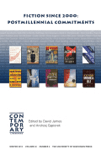
CONTEMPORARY LITERATURE
Exploring the Evolution of Literary VoicesCONTEMPORARY LITERATURE, published by the prestigious University of Wisconsin Press, stands as a vital platform for scholars and enthusiasts within the field of literary studies. With its ISSN 0010-7484 and E-ISSN 1548-9949, this journal has established itself as a respected source of innovative research across various dimensions of literature and literary theory. Holding an impressive Q2 ranking in the 2023 category of Arts and Humanities, this publication not only reflects current trends but also fosters critical discourse around contemporary authors and movements from 2002 to 2024. Engaging articles submitted to CONTEMPORARY LITERATURE enhance our understanding of narrative forms and their cultural relevance, making it an essential read for academics, professionals, and students alike. While the journal is not open access, its impact within the literary community continues to grow, as evidenced by its Scopus rank of #616 out of 1106. For those dedicated to exploring the evolving landscape of literature, CONTEMPORARY LITERATURE is a must-have in one's scholarly toolkit.
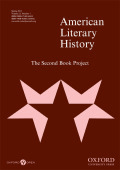
AMERICAN LITERARY HISTORY
Understanding the Interplay of Culture and LiteratureAMERICAN LITERARY HISTORY, published by Oxford University Press Inc, is a leading peer-reviewed journal dedicated to advancing the understanding of American literature within the broader contexts of cultural studies and history. With an impressive impact factor reflecting its Q1 ranking in Cultural Studies, History, and Literature and Literary Theory, this journal serves as an essential resource for researchers, professionals, and students alike. Covering a wide range of topics, it seeks to illuminate the historical and cultural dynamics that shape literary production in the United States from 1989 to 2024. Although not an open access journal, AMERICAN LITERARY HISTORY remains a pivotal platform for scholarly discourse, encouraging rigorous scholarship and critical engagement with literary texts. The journal's strong Scopus rankings further emphasize its significance, ranked among the top journals in its field, making it an indispensable tool for anyone seeking to explore the rich tapestry of American literary heritage.

NOVYI MIR
Navigating the Intersection of Thought and LiteratureNOVYI MIR, published by IZD STVO IZVESTIYA, is a distinguished journal that provides a platform for scholarly discourse in the humanities, literature, and cultural studies. With an ISSN of 0130-7673, this journal has made significant contributions to the academic community, particularly within Russia and Eastern Europe. Although it does not currently offer an open access model, its content is revered for its quality and depth, catering to researchers, professionals, and students alike. With a commitment to examining contemporary issues through a literary lens, NOVYI MIR is essential for those seeking to explore the intersection of culture and society. The journal's relevance is underscored by its esteemed reputation in literary circles, making it a vital resource for anyone dedicated to understanding the nuances of Russian literature and thought.

Slovenska Literatura
Unlocking Insights into Literary ComplexitySlovenska Literatura, published by the prestigious SLOVAK ACADEMY OF SCIENCES, INSTITUTE OF SLOVAK LITERATURE, stands as a vital resource in the field of literature and literary theory. With an ISSN of 0037-6973, this journal has attained an impressive Q1 category status in its discipline as of 2023, placing it among the elite literary journals globally. Open access since 2017, Slovenska Literatura provides an inclusive platform for the dissemination of innovative research and critical discussions while fostering scholarly communication across borders. The journal aims to explore the rich tapestry of Slovak literature as well as its interaction with global literary trends, offering insights that are integral for researchers, professionals, and students alike. With its publication base located in Bratislava, Slovakia, it has established itself as an essential point of reference for anyone interested in the complexities of literature, earning its recognition within the Scopus Arts and Humanities ranking. Researchers can delve into its contributions, significantly enriching their understanding of both local and international literary landscapes.
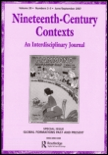
Nineteenth-Century Contexts-An Interdisciplinary Journal
Exploring the Rich Tapestry of the Nineteenth CenturyNineteenth-Century Contexts: An Interdisciplinary Journal is a pivotal academic publication that serves as a vital resource for scholars and students engaged in the exploration of the complex cultural, literary, and social dimensions of the nineteenth century. Published by Routledge Journals, Taylor & Francis Ltd, this journal holds a position within the Q2 and Q3 quartiles in the fields of Literature and Literary Theory and Cultural Studies respectively, illustrating its significance and relevance in contemporary research. Since its inception in 1987, it has fostered interdisciplinary dialogue and examination of the era's rich contexts, featuring articles that weave together historical, literary, and cultural analyses. Although the journal does not currently offer an open access model, its rigorous peer-review process guarantees scholarly integrity and quality. Housed in the United Kingdom, it caters to a global audience, thereby attracting diverse perspectives and insights, making it an essential publication for anyone looking to deepen their understanding of the complexities of the nineteenth century.